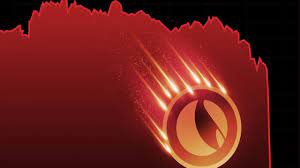Shanghai Municipal People's Government Counselor: Transforming the real economy with blockchain technology and promoting deep integration between the two
Author: Shengsong Cheng (Shanghai Municipal People's Government counselor, CEIBS Professor of Economics and Finance) Source: Economic Times Editor's Note: The original title is "block chain with more serve the real economy."
Blockchain technology has great potential for development and will be widely used in the future. However, for blockchain technology, the first important thing is to land and serve the real economy.
The blockchain has the characteristics of decentralization and data tampering, which helps to establish peer-to-peer trust and reduce transaction costs in the process of information transmission. For example, blockchain can be used to identify the authenticity of art. For example, in the field of mass service, digital copyright, intellectual property, and various certificates can use the blockchain to establish a new management mechanism to improve the fairness and fairness of public services. Transparency, and so on.
Of course, you also need to think about the cost of R&D and application of blockchain technology. In other words, the benefits of using blockchain technology can exceed its R&D and application costs. This account should be considered good.
- Exploring the value of blockchain application (1): How to change the collaborative relationship?
- Understanding the General Secretary Xi Jinping's Speech on Blockchain Technology from a Technical Perspective
- List | "Global Top20 Encryption Fund Rankings" Secret
It should be pointed out that the application of blockchain is not suitable for all fields.
For example, bitcoin with the blockchain flag was popular, and some people thought that the emergence of bitcoin was a huge challenge to the current monetary system. However, as time goes by, the non-monetary nature of virtual currency is gradually recognized by people. Recently, Libra, which has received wide attention, has different application scenarios from other cryptocurrencies or stable currencies, but its distribution mechanism also determines that Libra is difficult to exist as a real currency.
From the perspective of the history of currency development, there have been two revolutionary changes in currency, namely physical currency and modern credit currency. The physical currency is characterized by its own intrinsic value, and its value is used to measure the value of goods and act as a medium for commodity exchange. The modern credit monetary system is closely linked to the state and the modern economic and social organization. The national currency issued by the state has national credit support, behind which is the wealth of the whole society and the commodities of the transaction. The state issues the local currency according to the needs of the whole society for the production and trading of goods, guarantees the circulation of the functional currency by law, and maintains the stable value of the functional currency through the central adjustment mechanism, thus maintaining the normal operation of the modern credit currency system. It is not difficult to see that the currency sector is most in need of centralization, and the blockchain is precisely decentralized.
Monetary policy is one of the major economic policies of almost all countries in the world. The most basic condition for the use of monetary policy is that the central bank monopolizes currency distribution rights and regulates interest rates, exchange rates, prices, employment, and economic growth. Even with the advancement of technology, the development of a single banknote into various forms such as electronic money is still the endorsement of national credit, which is the most fundamental point. Sovereign countries will not give up monetary policy for the foreseeable future. Therefore, private creation and distribution of digital currency is not a real currency, does not have national credit support, and will have a serious negative impact on current monetary sovereignty, financial stability, monetary policy, and financial supervision.
In addition, efficiency and security are also important for the financial system, and the blockchain does not have much advantage over the current financial system. In fact, the current payment system is already very secure and convenient, and can support a relatively large transaction volume. Studies have pointed out that the blockchain is not as efficient in trading as the current payment system. If you want to anti-money laundering, anti-tax evasion, etc., the current electronic trading can also achieve this goal.
In short, more consideration should be given to using the blockchain technology to transform the real economy, to promote the deep integration of the blockchain and the real economy, and to return everything to the source. This is the direction in which the development of blockchain technology should focus.
We will continue to update Blocking; if you have any questions or suggestions, please contact us!
Was this article helpful?
93 out of 132 found this helpful
Related articles
- Interpretation of Debitralization of Blockchain Chain Decentralized Finance (DeFi)
- Has the GitHub changed, should the Bitcoin code base find another way out?
- CeFi and DeFi will eventually fight
- The price of compromise! Uber pays hackers $100,000 in bitcoin ransom and is fined $148 million
- Research: 21.6% of Bitcoin has not been moved for 5 years. The last big drop was made by short-term investors.
- Who is the future of the coin blockchain and the coinless blockchain?
- Hangzhou Party Committee Secretary likes the blockchain: the number of our head enterprises is the third in the country






